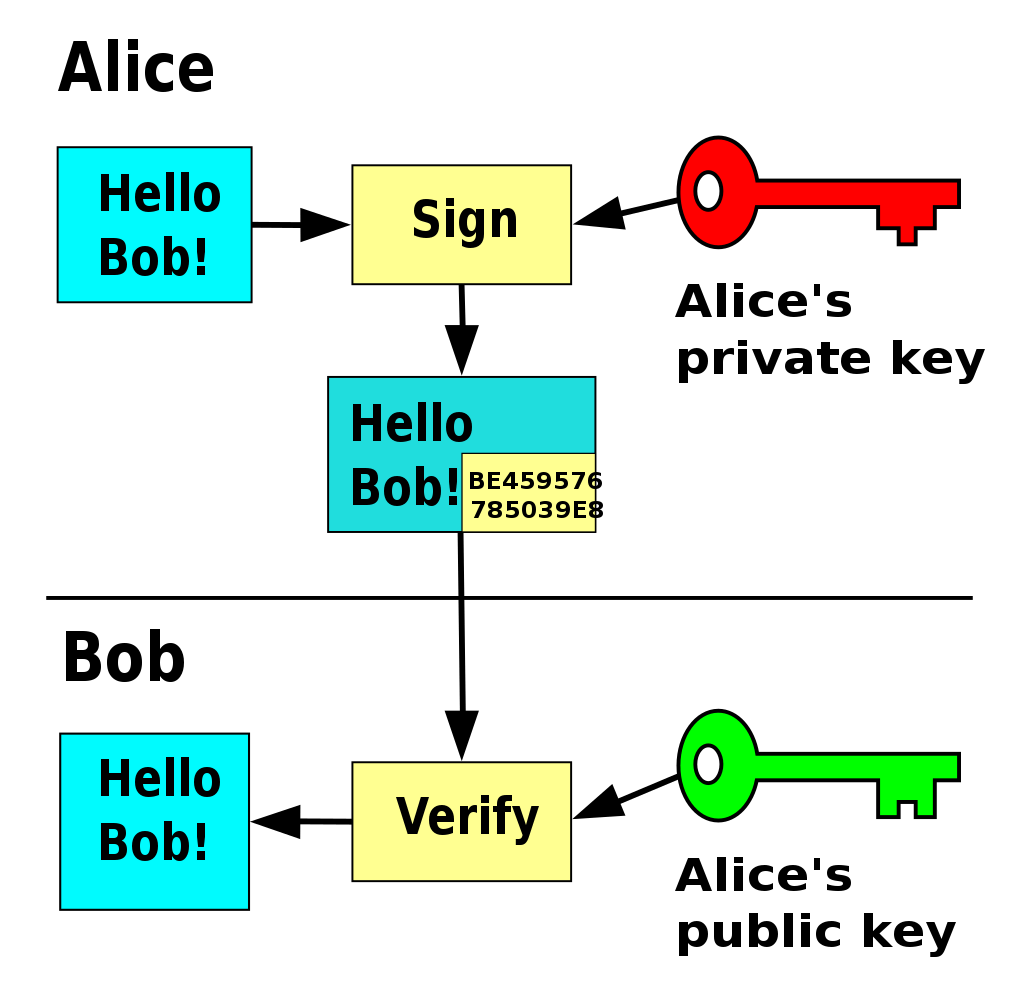Public-key cryptography, or asymmetric cryptography, is the field of cryptographic systems that use pairs of related keys. Each key pair consists of a public key and a corresponding private key. Key pairs are generated with cryptographic algorithms based on mathematical problems termed one-way functions. The security of public-key cryptography depends on keeping the private key secret; the public key can be openly distributed without compromising security.
In a public-key encryption system, anyone with a public key can encrypt a message, yielding a ciphertext. Still, only those who know the corresponding private key can decrypt the ciphertext to obtain the original message.
For example, a remote journalist can publish the public key of an encryption key pair on a website so that sources can send secret messages to the central news organization in the ciphertext. Only the journalist who knows the corresponding private key can decrypt the ciphertexts to obtain the sources’ messages—an eavesdropper reading email to the journalist can’t decipher the ciphertexts.
However, public-key encryption doesn’t conceal metadata like what computer a source used to send a message, when they sent it, or how long it is. Public-key encryption also doesn’t tell the recipient anything about who sent a message—it just conceals the content of a message in a ciphertext that can only be decrypted with the private key.
In a digital signature system, a sender can use a private key and a message to create a signature. Anyone with the corresponding public key can verify whether the signature matches the message, but a forger who doesn’t know the private key can’t find any message/signature pair that will pass verification with the public key.
For example, a software publisher can create a signature key pair and include the public key in software installed on computers. Later, the publisher can distribute an update to the software signed using the private key. Any computer receiving an update can confirm it is genuine by verifying the signature using the public key. As long as the software publisher keeps the private key secret, even if a forger can distribute malicious updates to computers, they can’t convince the computers that any malicious updates are genuine.
Public key algorithms are fundamental security primitives in modern cryptosystems, including applications and protocols that assure the confidentiality, authenticity, and non-repudiability of electronic communications and data storage. They underpin numerous Internet standards, such as Transport Layer Security (TLS), SSH, S/MIME, and PGP. Some public key algorithms provide key distribution and secrecy (e.g., Diffie–Hellman key exchange), some provide digital signatures (e.g., Digital Signature Algorithm), and some provide both (e.g., RSA). Compared to symmetric encryption, asymmetric encryption is slower than good symmetric encryption and too slow for many purposes. Today’s cryptosystems (such as TLS and Secure Shell) use symmetric and asymmetric encryption, often using asymmetric encryption to securely exchange a secret key which is then used for symmetric encryption.












